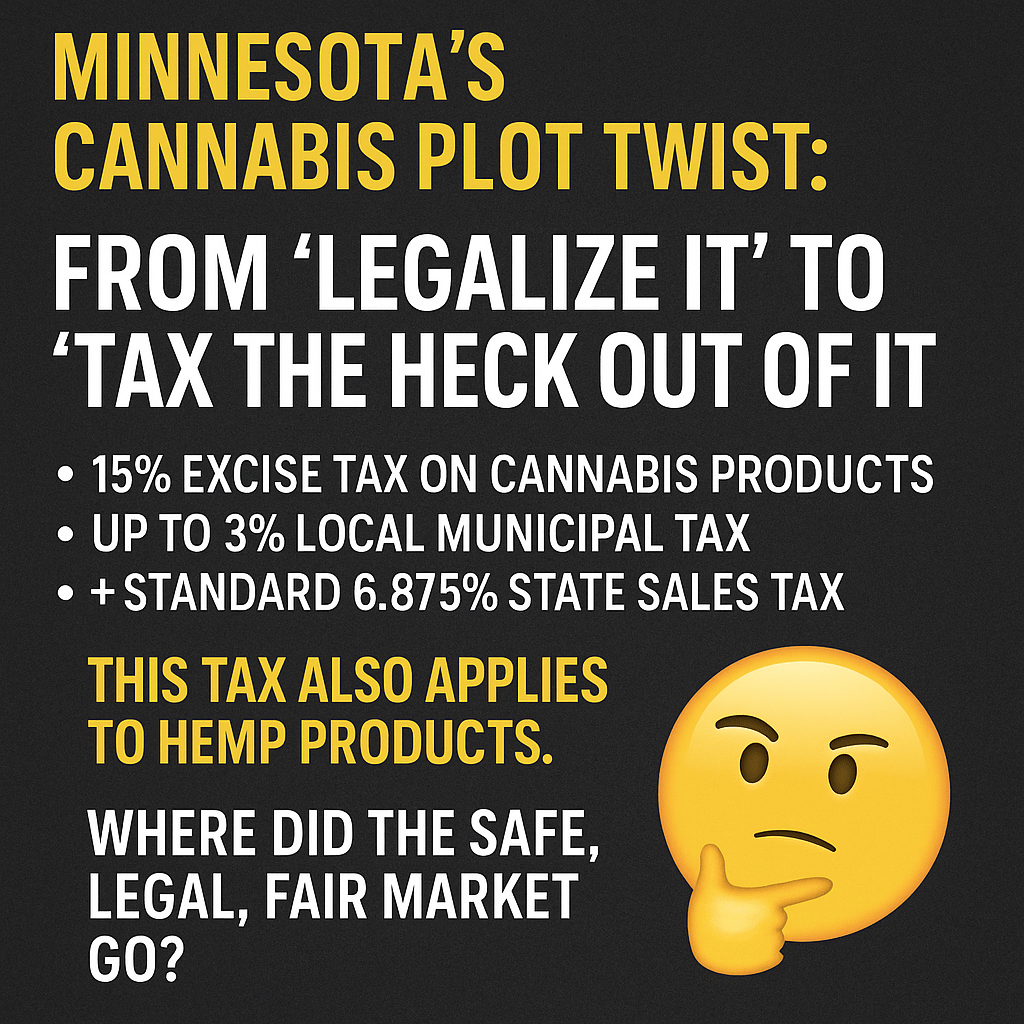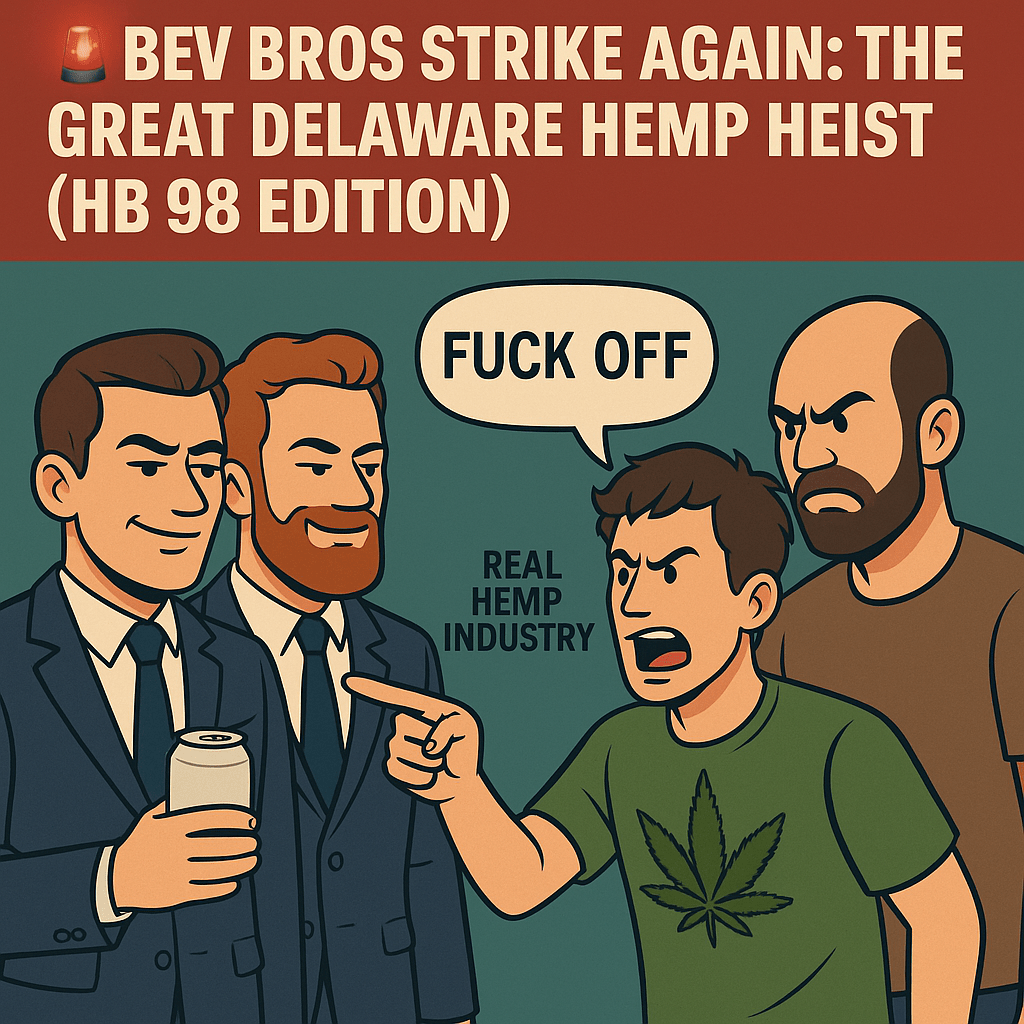In April 2025, Alabama enacted HB445, a sweeping law that imposes strict regulations on consumable hemp products—everything from gummies and beverages to topicals and tinctures. If you're a hemp brand or retailer, this bill changes everything about how you can do business in the state.
With enforcement beginning January 1, 2026, now is the time to understand what’s in the bill, how it could impact your operations, and what you can do to prepare.
🛒 For Retailers: Licensing and Compliance
To legally sell consumable hemp products in Alabama, you’ll need to meet stringent new requirements:
✅ Retail License Required
-
License issued by the Alcoholic Beverage Control (ABC) Board
-
$1,000 annual fee + $50 application fee
-
$25,000 surety bond
-
Background checks and fingerprinting
-
Approval from your local city or county
🧾 Operational Restrictions
-
Storefronts must be 21+ only
-
At least 500 sq ft of dedicated retail space
-
No vending machines, tastings, or self-service
-
Products must be in original packaging with a valid COA
-
Sales must be reported monthly to the state
For Brands: Product Formulation, Packaging & Testing
Brands must ensure their products conform to Alabama's standards, or they risk fines, seizures, and a total loss of market access.
Product Testing Requirements
-
COAs from independent ISO 17025-accredited labs
-
Must test for:
-
THC/CBD potency
-
Terpenes
-
Pesticides, heavy metals, solvents, mycotoxins, microbials
-
-
COAs must match label claims exactly
THC Limits
-
Edibles/beverages: max 10mg THC per serving
-
Topicals/sublinguals: max 40mg THC per container
-
Cartons: max 40mg THC total, max four 12oz beverages
🚫 Prohibited Products
-
Smokable hemp (buds, joints, etc.)
-
Chemically converted cannabinoids (e.g., isomerized delta-8, delta-10)
-
Any form of online or direct-to-consumer sales
Packaging and Labeling Rules
Your products must feature:
-
THC content per serving and container
-
Full ingredient list in descending order
-
Scannable QR code linked to COA
-
Batch number, expiration, and warnings:
-
Not for use by minors
-
May impair driving
-
May cause a failed drug test
-
Not for use during pregnancy/breastfeeding
-
No packaging may resemble candy, use cartoon imagery, or otherwise appeal to children.
🚫 Alabama Bans Direct-to-Consumer Sales
Perhaps the most controversial element of HB445 is its ban on online sales, delivery, and direct shipment of consumable hemp products.
What’s Prohibited:
-
E-commerce sales to Alabama residents
-
Subscription shipments
-
Drive-through or delivery sales
-
Any DTC fulfillment, in or out of state
Out-of-state brands will not be allowed to ship consumable hemp products to Alabama customers after Jan 1, 2026—even if the products comply with federal hemp laws.
⚖️ A Legal Tension with the 2018 Farm Bill?
Many in the hemp industry view this restriction as being in direct conflict with the 2018 Farm Bill, which explicitly protects the interstate transport of hemp and hemp-derived products under Section 10114:
“No State... shall prohibit the transportation or shipment of hemp or hemp products... through the State…”
While Alabama’s law does not prohibit hemp transportation through the state, it does prohibit shipment into the state for sale to its residents, raising serious legal and constitutional questions about interstate commerce and federal preemption.
Whether HB445’s direct-to-consumer ban will withstand legal scrutiny remains to be seen. It may ultimately become the subject of litigation from national brands, trade groups, or consumer rights organizations.
💣 Penalties for Noncompliance
Violations come with harsh consequences:
| Offense | Penalty |
|---|---|
| Selling without a license | Up to $10,000 + Class C felony |
| Selling to minors | Up to $20,000, license revoked for 3 years |
| Shipping DTC to Alabama residents | Misdemeanor (1st offense), felony (2nd offense) |
| Possessing or selling banned products |
Immediate seizure + possible felony charges |
All noncompliant hemp products are deemed contraband and can be seized without a warrant by law enforcement.
📦 What Brands and Retailers Can Do Now
✅ If You’re a Retailer:
-
Apply for licensing as early as possible
-
Begin updating store operations, ID checks, and display standards
-
Train employees on new compliance procedures
✅ If You’re a Brand:
-
Stop selling or shipping DTC to Alabama residents before Jan 1, 2026
-
Reformulate products to remove non-compliant cannabinoids
-
Update packaging to meet Alabama's labeling and content requirements
-
Partner with licensed in-state retailers or distributors to stay in the market
🧭 Final Thoughts
Alabama’s HB445 is part of a larger wave of state-level crackdowns on low-dose THC and hemp-derived cannabinoids. While intended to protect consumers—especially minors—it also places a heavy burden on small brands and online retailers, and raises legal questions about the limits of state power in a federally legalized hemp marketplace.
For now, one thing is clear: January 1, 2026 is a hard stop. If you’re not compliant by then, you’re out of the Alabama market.








































